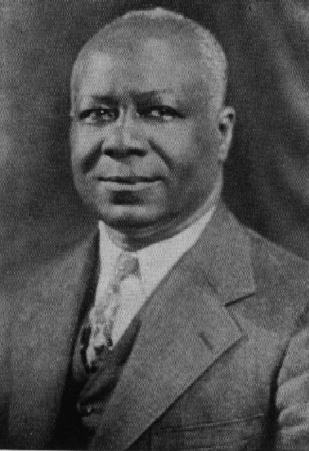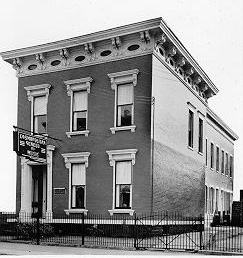Dr. Artie Matthews (1888-1958)
Artie Matthews was born in Braidwood, Illinois on November 15, 1888. He grew up in Springfield, Illinois where his mother taught him music at an early age. He later learned ragtime from two local pianists, Banty Morgan and Art Dillingham. After playing professionally around Springfield, he moved to St. Louis in 1908 and became the "house" composer and arranger for Tom Turpin's Booker T. Washington Theater. While in St. Louis, Matthews also continued his musical studies at the Keeton School of Music. Matthews' abilities as a composer, arranger, and pianist were outstanding and he made full use of them by engaging in popular music compositions. He was the first to actually publish a blues, the Baby Seals Blues (1912), and his Weary Blues (1915) has become an American standard. Matthews also composed five Pastime rags during this period that are considered as some of the greatest contributions to the "classic ragtime" literature. Gunther Schuller had this to say about Matthews' Pastime rags:
"The harmonic sophistication of those Pastime rags is extraordinary! I mean there isn't one place where there is anything predictable or expected. Well, that's great creativity. That's great melodic invention, harmonic invention. So he was very adept in the harmonic, and more advanced than Joplin."
In 1916, Matthews moved to Cincinnati, Ohio to become a church organist. Realizing that white racism and legal segregation were having a handicapping effect on the African American community of Cincinnati, including denial of equal opportunities in education and employment, he decided to take action. In 1921, Matthews and his wife, Anna Howard, established the Cosmopolitan School of Music (photo above), the first black owned and operated music conservatory in the U.S. For the next thirty-seven years, Matthews provided exposure, training, and education for hundreds of African Americans desiring knowledge and/or careers in music. Perhaps the most notable of Mr. Matthews' students who attended and graduated was Frank Foster (principal arranger for The Count Basie Orchestra) whose mother taught elocution at the school. He also continued to apply his musical skills through work in Cincinnati's African American churches as a choir leader, arranger and composer of African American religious music. In 1938, Matthews' talents, accomplishments and convictions were recognized when he was awarded an honorary doctoral degree by Central State University.
Dr. Matthews was also active as a leader in the Cincinnati black community. He was a member of race relations committees that challenged the segregation laws; he was secretary of the black musicians' union for over thirty-five years; he arranged music for the Cincinnati Symphony Orchestra; and he organized and produced Negro Music Festivals.
There is no doubt that Matthews was one of the premier composers and performers of Ragtime, the first music which sought a genteel combination of the best of the Western European and African musical traditions, but his musical activity went much further than that. The proof of his musical study of the techniques of the masters of Western European art music is evident in his cantata Ethiopia, which not only surveys a melodic line not unlike those of the late Romantic composers, but his knowledge of imitative counterpoint was second to none.
(From website of Art Matthews, son of Dr. Artie Matthews)

